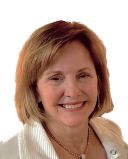Leadership
3 Practices to Become a Better Leader
Leadership success depends on great communication and genuine caring.
Posted August 24, 2023 Reviewed by Michelle Quirk
Key points
- Emotional and social intelligence are building blocks of communication and successful leadership.
- The best leaders have a parental relationship with their followers, in the best sense of the term.
- To become a better leader, first focus on becoming a better person.
This week on my podcast, I had the pleasure of interviewing Ronald Riggio, the Henry R. Kravis Professor of Leadership and Organizational Psychology, and former director of the Kravis Leadership Institute, at Claremont McKenna College in California. He is the author of more than 150 publications, including research articles and 24 books in the areas of leadership, organizational psychology, and social psychology, and he is a fellow blogger on Psychology Today.
At the heart of excellent leadership is communication, and communication begins with listening—really listening—to what your followers are saying and, sometimes, not saying. Verbal communication is at the heart of social intelligence, but nonverbal communication is the foundation of emotional intelligence. When people shut down and don’t or won’t talk, it is the listener's job to intuit what they are feeling and find a path to talking again.
“Body language” is not a true language in the sense that there are not universal unconscious postures or gestures that can be reliably translated. Rather, body language should be seen as one data point and interpreted in the context of the conversation, the culture, and the individual. For example, many people have a resting angry face; they are likely not angry at all, but their natural anatomy may lead to misinterpretation of their actual emotions. Likewise, people who naturally seem very smiley may or may not have an underlying upbeat emotional state.
Riggio’s interview was peppered with fascinating research findings about communication. For example, he has found that the higher one is in the leadership hierarchy, often the worse their listening skills become. The best leaders have a quasi-parental relationship with their followers in the best sense of parenting. They genuinely care about their followers and are generous in listening, supporting, and mentoring. They understand that their followers are not perfect people with perfect lives and often have significant personal problems, and they encourage them to resolve those problems and find ways not to bring them into the workplace. Research shows that the more employees feel genuinely cared about, the more committed and effective they are in their work.
I asked Riggio about an emotion that seems to be very hard to read: envy. I observe that although envy is a universal experience, we find it to be a shameful or embarrassing feeling and try to suppress it. Yet, it is an enormously powerful emotion that can drive destructive behavior. He commented that envy and its twin, resentment, are often exploited politically to create a dynamic of we vs. they that underlies a polarization in communities and in nations.
I asked Riggio for his top-three recommendations for becoming a better leader:
- Make a commitment to put yourself on a developmental path to improving your leadership skills. His new book, Daily Leadership Development, 365 Steps to Becoming a Better Leader, is meant to be a nightstand reading with brief insights for daily steps to leadership development.
- Consider an activity such as Toastmasters or improv classes, which can be excellent ways to improve communication skills and get great feedback and suggestions from your peers.
- Finally, if you want to be a better leader, work on becoming a better person: more sensitive, empathic, and aware of the needs, rights, and emotions of people in your life. Leadership involves personality traits that you don’t put on and take off, but is the expression of values and habits that you can nurture within yourself in your everyday relationships.
References
Riggio, Ronald. Daily Leadership Development, 365 Steps to Becoming a Better Leader. Self-published, 2020.


